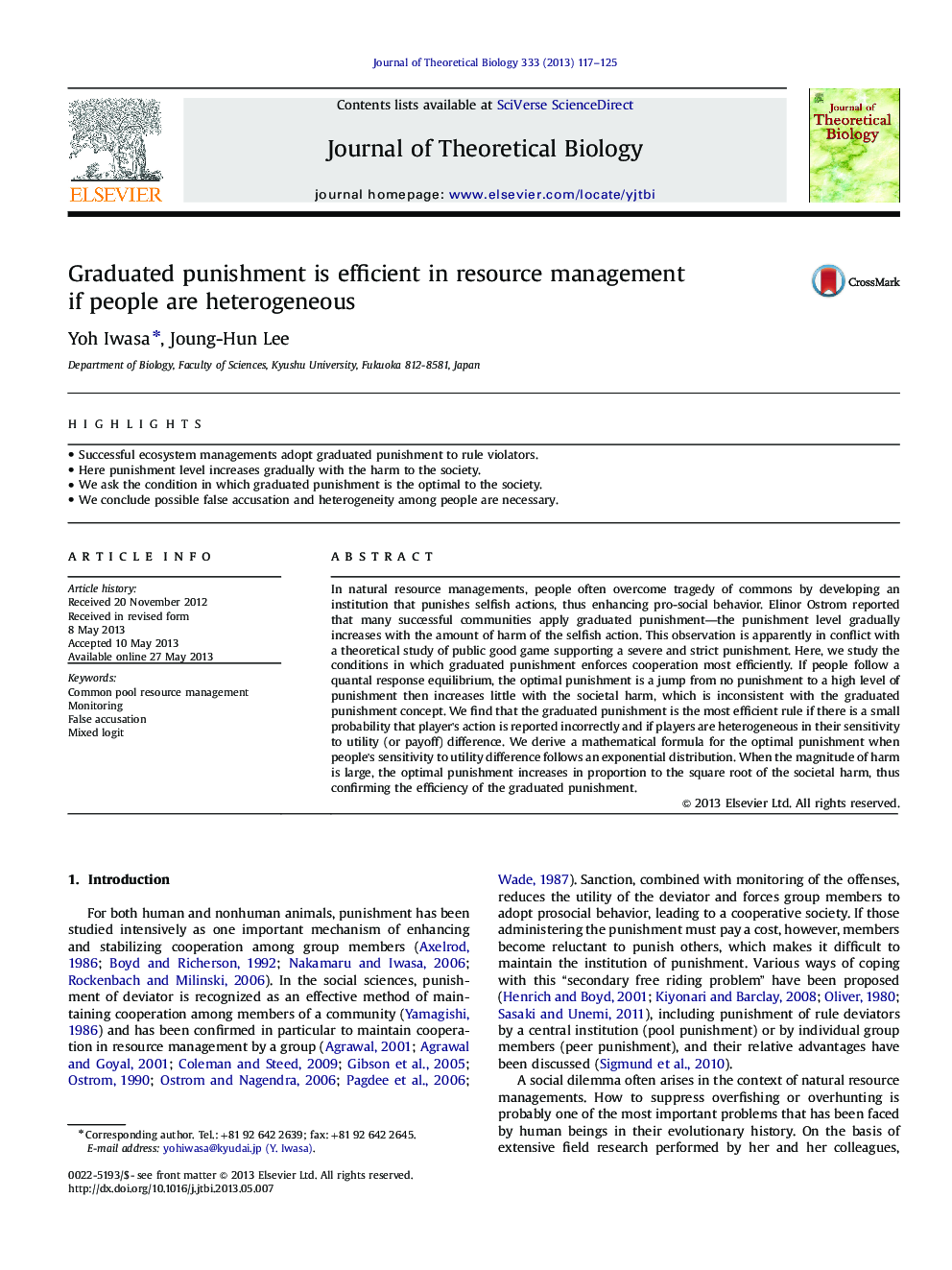| Article ID | Journal | Published Year | Pages | File Type |
|---|---|---|---|---|
| 6370739 | Journal of Theoretical Biology | 2013 | 9 Pages |
Abstract
In natural resource managements, people often overcome tragedy of commons by developing an institution that punishes selfish actions, thus enhancing pro-social behavior. Elinor Ostrom reported that many successful communities apply graduated punishment-the punishment level gradually increases with the amount of harm of the selfish action. This observation is apparently in conflict with a theoretical study of public good game supporting a severe and strict punishment. Here, we study the conditions in which graduated punishment enforces cooperation most efficiently. If people follow a quantal response equilibrium, the optimal punishment is a jump from no punishment to a high level of punishment then increases little with the societal harm, which is inconsistent with the graduated punishment concept. We find that the graduated punishment is the most efficient rule if there is a small probability that player's action is reported incorrectly and if players are heterogeneous in their sensitivity to utility (or payoff) difference. We derive a mathematical formula for the optimal punishment when people's sensitivity to utility difference follows an exponential distribution. When the magnitude of harm is large, the optimal punishment increases in proportion to the square root of the societal harm, thus confirming the efficiency of the graduated punishment.
Keywords
Related Topics
Life Sciences
Agricultural and Biological Sciences
Agricultural and Biological Sciences (General)
Authors
Yoh Iwasa, Joung-Hun Lee,
